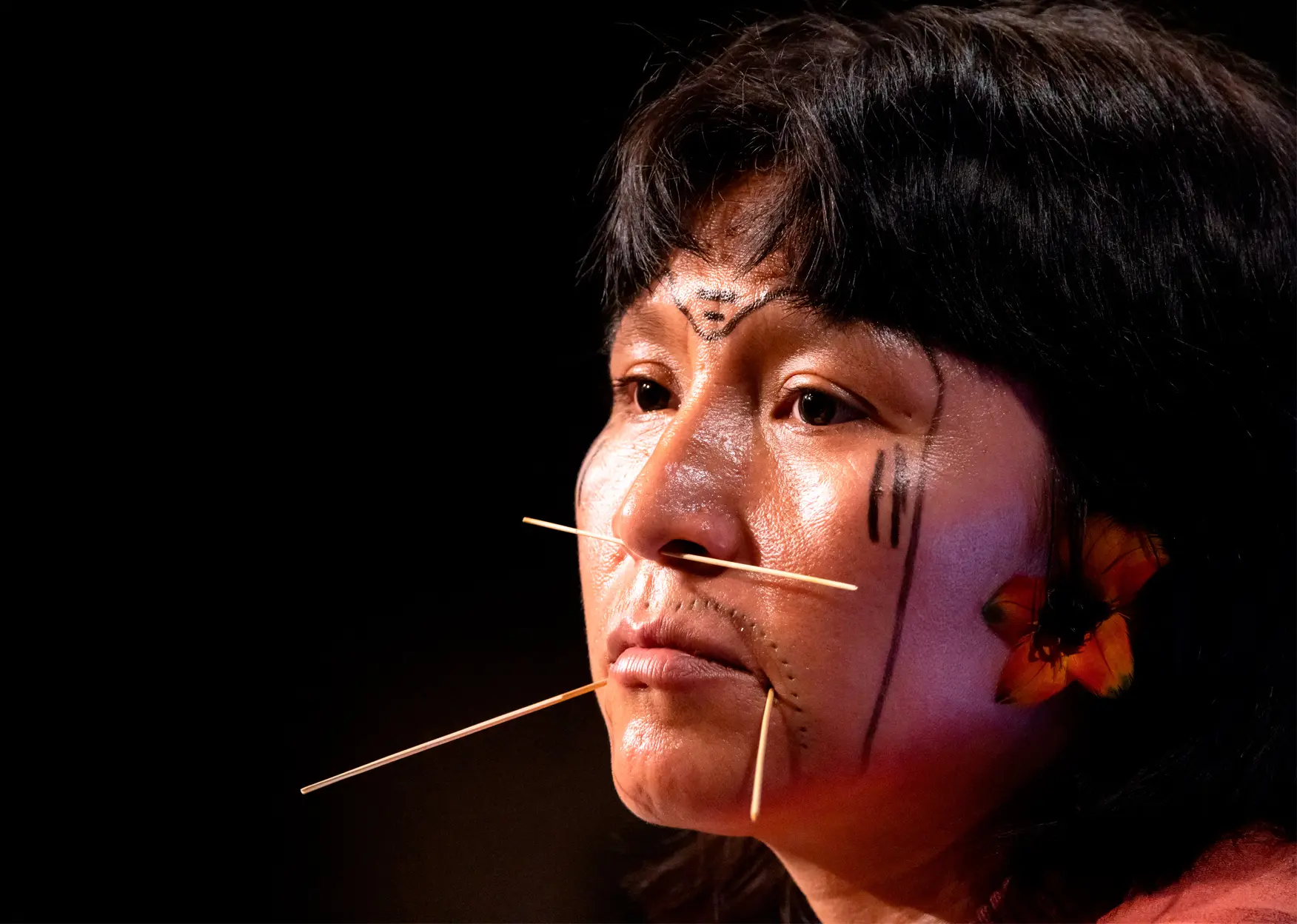The Lula administration’s auction of 34 new blocks for oil exploration, 19 of which are in the extremely environmentally sensitive Foz do Amazonas region, was met with consternation at the UN’s mid-year climate talks. The meeting happening in Bonn, Germany is decisive to setting the agenda for COP30 in Belém – including whether or not an international agreement is possible on a timeline to gradually eliminate fossil fuels.
In Bonn and in Rio de Janeiro, where the auction was held, social and environmental organizations, union members and Indigenous leaders protested. Stela Herschmann of the Climate Observatory said the auction “is a dual act of sabotage.” First, “because it puts everyone’s future at risk,” since the “science is clear” on the need to drastically reduce the burning of fossil fuels to avoid climate collapse. The auction then sabotages “Brazilian diplomacy, which is trying to do its best in Bonn to mobilize the world for an ambitious COP in November,” she added
Brazil’s oil regulator, the ANP, said the auction raised R$ 989 million. Mines and energy minister Alexandre Silveira crowed about the figure: “An absolute record.” In Foz do Amazonas, where the environmental agency, Ibama, is poised to authorize the region’s first drilling operation, in Block 59, ten areas were awarded to a consortium of Brazil’s Petrobras and US-based ExxonMobil, while a consortium between a different American company, Chevron, and China’s CNPC took nine other areas.
“Petrobras is positioning itself as a leading player in a risky political project that is digging a hole in Brazil’s environmental credibility,” Mariana Andrade, of Greenpeace, said.
Two years ago, COP28 agreed to gradually eliminate oil, gas and coal and to do it in a “just, orderly and equitable manner,” but dramatic steps backward have been taken since then. A survey by Oil Change International shows that four wealthy countries – the USA, Canada, Norway and Australia – will be responsible for 70% of the growth in fossil fuel production by 2035. Brazil is ninth on the list, which also includes Argentina, China and Russia. “Some of the wealthiest countries are, once again, fleeing the responsibility of leading an equitable elimination of fossil fuels,” Romain Ioualalen, of Oil Change, said.
Report and text: Claudia Antunes
Editing: Fernanda da Escóssia
Art Editor: Cacao Sousa
Photo Editor: Lela Beltrão
Fact-checker: Plínio Lopes
Proofreader (Portuguese): Valquíria Della Pozza
Spanish translation: Julieta Sueldo Boedo
English translation: Sarah J. Johnson
Copyediting and finishing: Natália Chagas
Editorial workflow: Viviane Zandonadi
Editor-in-chief: Talita Bedinelli
Editorial director: Eliane Brum






